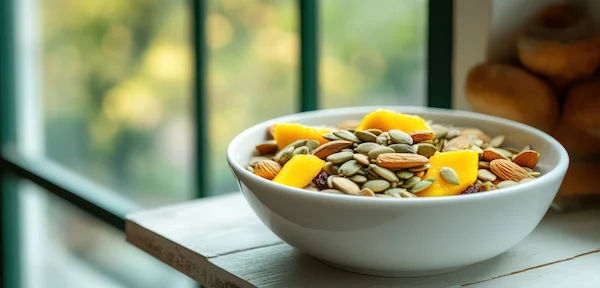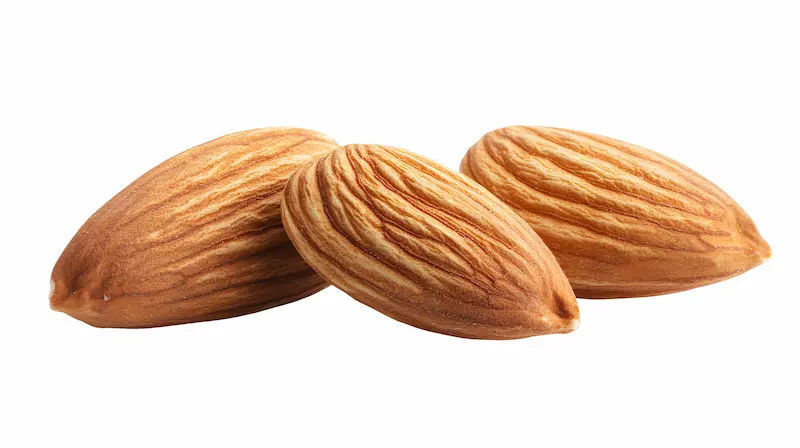Peaches in Ayurveda: Benefits, Nutrition, and Side Effects
Explore peach benefits with an Ayurvedic lens: nutrition, simple tips, and side effects. A practical guide to ayurvedic fruits for everyday health.


Introduction
Peaches are juicy, refreshing, and naturally satisfying—one of those fruits that feel like a treat and a health booster at the same time. Many people enjoy them simply for their flavour, but if you’ve ever wondered whether peaches are genuinely good for you or how they fit within Ayurvedic eating principles, this guide brings together both traditional and modern viewpoints. In Ayurveda, fruits are often celebrated for their lightness, hydration, and natural sweetness. From a nutritional perspective, peaches contribute fibre, vitamin C, potassium, and a range of plant compounds. By understanding both angles, you can decide how peaches may support your well-being, how to prepare them, and which situations call for caution. Whether you enjoy them fresh, frozen, lightly warmed, or blended into smoothies, peaches can be a simple and enjoyable part of a balanced routine.Consult a Top Ayurveda Doctor for Personalised Advice
What Ayurveda Is—and Where Peaches Fit
Ayurveda is a long-standing health system from India that emphasises balance in daily routines, food choices, and lifestyle habits. While not a replacement for medical care, it provides a mindful approach to how and when we eat. Let us now see how peaches fit in Ayurveda:
How do peaches align with Ayurvedic-style eating?
- Seasonal eating: Juicy, ripe fruits are often encouraged in season, when digestion may feel more comfortable.
- Light and hydrating: Peaches are generally considered light and refreshing when eaten ripe.
- Simple combinations: Traditional Ayurvedic guidance often suggests enjoying fruit on its own or alongside simple meals for ease of digestion.
- Personal response: Pay attention to how peaches make you feel; adjust portions and timing as needed.
Important note
- Ayurveda has limited scientific evidence behind many of its theories. Use its principles as complementary rather than medical directives.
Peach Nutrition at a Glance
Fresh peaches consist mostly of water and offer vitamins, minerals, fibre, and beneficial plant compounds.
What you get in a fresh peach
- Hydration: High water content supports daily fluid intake.
- Fibre: Helps promote regular digestion and contributes to fullness.
- Vitamin C: A key antioxidant supporting immune and skin health.
- Potassium: Essential for normal nerve and muscle function.
- Phytonutrients: Carotenoids and polyphenols that provide colour and antioxidant properties.
Tips
- Choose fresh or frozen peaches without added sugar.
- Canned peaches are fine when packed in water or 100% juice—drain to reduce sugars.
Top Peach Benefits Backed by Science
While research often focuses on overall fruit intake rather than peaches alone, peaches contribute to the benefits seen in fruit-rich diets.
Heart and Metabolic Health
- Fruit- and vegetable-rich diets are associated with reduced risks of heart disease and stroke.
- Fibre supports healthy cholesterol levels and steadier blood sugars.
- Whole fruits can help replace refined sweets and support weight management.
Digestive Wellness
- Fibre in peaches supports regularity.
- For sensitive digestion, begin with small portions and observe your response.
Hydration and Skin Support
- High water content contributes to hydration.
- Vitamin C supports collagen formation, important for skin integrity.
Smart Sweet Satisfaction
- A naturally sweet snack with fewer calories than many desserts.
- Provides nutrients instead of “empty” calories.
How Peaches Fit Into Ayurvedic Fruits Traditions?
Common Ayurvedic-style principles
- Choose seasonal, ripe fruit for easier digestion.
- Keep meals simple, avoiding heavy combinations.
- Listen to your body and adapt based on personal comfort.
These are guidelines, not strict rules. Always follow medical guidance if you have a health condition.
Side Effects and Precautions
Some common side effects and precautions include:
Allergies and Oral Allergy Syndrome (OAS)
- Some people experience mouth or throat itchiness, especially those with birch pollen allergies.
- Others may have more severe stone fruit allergies.
- Seek medical advice if you’ve experienced symptoms.
Digestive Sensitivity (FODMAPs)
- Peaches contain fermentable carbohydrates that may cause symptoms in some people with IBS.
- If following a low-FODMAP diet, use peaches cautiously and with guidance.
Blood Sugar Management
- Whole peaches can fit into diabetes-friendly approaches when eaten in moderate portions.
- Pairing with protein or healthy fats may help stabilise blood sugar.
- Follow your clinician’s instructions.
Potassium and Kidney Disease
- Peaches contain potassium, so those with chronic kidney disease may need to monitor portions.
The Pit
- Do not chew or swallow the peach pit.
- It’s inedible, poses a choking risk, and the inner kernel is not a food.
Food Safety
- Wash peaches thoroughly before eating.
- Refrigerate cut peaches and discard if spoiled.
Practical Tips to Get More From Peaches
Practical tips for maximising the benefits of peaches include:
How to choose and prepare peaches
- Pick: Look for fragrant peaches that yield slightly when pressed.
- Ripen: Place firm peaches in a paper bag at room temperature.
- Store: Refrigerate once ripe to slow softening.
- Prep: Eat with the skin for extra fibre, or peel for sensitivity.
Simple pairings and ideas
- Breakfast: Sliced peach with plain yoghurt and nuts.
- Snack: Peach with a handful of almonds or seeds.
- Hydration: Blend frozen peach with water and mint.
- Salads: Combine with leafy greens, cucumbers, and vinaigrette.
- Warm dishes: Lightly grill peach halves for a smoky-sweet flavour.
How Much Is a Serving?
A serving contains:
- A standard serving is 1 medium peach or 1 cup of sliced peach.
- Most adults benefit from several servings of fruit and vegetables each day.
Canned, Frozen, or Fresh?
Let us see which one contains better
- Fresh: Ideal when in season for flavour and aroma.
- Frozen: Picked at peak ripeness; excellent for smoothies and porridge.
- Canned: Choose varieties in water or 100% juice; drain to reduce sugar.
Who Should Be Extra Careful?
Be cautious in the following scenarios:
- Those with stone fruit allergies or OAS.
- Individuals following a low-FODMAP diet.
- People with advanced kidney disease need to monitor potassium.
- Infants and toddlers need age-appropriate, soft slices and careful removal of pits.
Simple Ayurvedic-Inspired Ways to Enjoy Peaches
Easy, mindful options
- Mid-morning snack: A ripe peach enjoyed slowly.
- Light breakfast: Warm oats topped with gently stewed peaches.
- Summer bowl: Yoghurt, sliced peach, and toasted seeds.
Conclusion
Peaches offer a refreshing blend of hydration, fibre, vitamins, and natural sweetness, making them a versatile fruit to enjoy throughout the season. Whether viewed through the lens of nutrition or Ayurveda, they can be a supportive part of a balanced routine when eaten ripe and mindfully. Paying attention to your body’s response helps you judge the right portion and timing for you. With simple preparation methods and thoughtful pairings, peaches can easily become a nutritious staple. As always, follow your clinician’s advice if you have allergies, digestive sensitivities, or medical conditions.
Final Word
Peaches can be a delicious, seasonal way to add more fruit to your day. By combining modern nutrition with mindful, Ayurvedic-inspired habits, you can enjoy peach benefits while paying attention to your unique needs. If you have allergies, IBS, diabetes, kidney disease, or other conditions, personalise your peach portions and talk with your healthcare provider for tailored advice.
Consult a Top Ayurveda Doctor for Personalised Advice
Consult a Top Ayurveda Doctor for Personalised Advice

Dr. Pepsy Jose
Panchakarma Practitioner
14 Years • BAMS, MD Ayurveda (Panchakarma)
Bengaluru
AYURRHYTHM HOLISTIC CLINIC AND PANCHAKARMA THERAPY, Bengaluru

Dr. Rik Sadhukhan
Ayurveda Practitioner
8 Years • BAMS
Kolkata
Vedhive Ayurveda, Ballygunge, Kolkata

Dr. Anjan Das
Ayurveda Practitioner
8 Years • Ayurvedacharya ( B.A.M.S )
Dumdum
Vedhive Ayurveda Clinic, Dumdum

Dr. Shiv Prakash Singh
Ayurveda Practitioner
19 Years • BAMS
Kolkata
Vedhive Ayurveda College Street, Kolkata
Consult a Top Ayurveda Doctor for Personalised Advice

Dr. Pepsy Jose
Panchakarma Practitioner
14 Years • BAMS, MD Ayurveda (Panchakarma)
Bengaluru
AYURRHYTHM HOLISTIC CLINIC AND PANCHAKARMA THERAPY, Bengaluru

Dr. Rik Sadhukhan
Ayurveda Practitioner
8 Years • BAMS
Kolkata
Vedhive Ayurveda, Ballygunge, Kolkata

Dr. Anjan Das
Ayurveda Practitioner
8 Years • Ayurvedacharya ( B.A.M.S )
Dumdum
Vedhive Ayurveda Clinic, Dumdum

Dr. Shiv Prakash Singh
Ayurveda Practitioner
19 Years • BAMS
Kolkata
Vedhive Ayurveda College Street, Kolkata
More articles from General Medical Consultation
Frequently Asked Questions
1) Are peaches good for you?
Yes. Peaches provide vitamin C, potassium, fibre, and hydration. When eaten as part of a varied diet, they support overall health and offer a satisfying, nutrient-rich snack.
2) Can people with diabetes eat peaches?
Most people with diabetes can enjoy peaches in sensible portions. Pair them with yoghurt, nuts, or seeds, and keep track of your blood sugar response as advised by your clinician.
3) Are peaches considered Ayurvedic fruits?
In Ayurveda, ripe and seasonal fruits are generally encouraged. Peaches can fit this pattern for many people, though personal tolerance varies. Notice how your digestion responds.
4) Is it okay to eat peach skin?
Yes. The skin is edible and contains additional fibre and plant compounds. Wash well before eating. If the texture bothers you, peeling is fine.
5) Do peaches cause allergies?
Some individuals experience reactions ranging from mild mouth itchiness to more severe symptoms. If you’ve reacted before, seek medical guidance and avoid peaches until evaluated.




